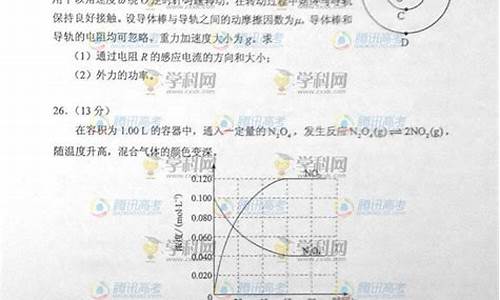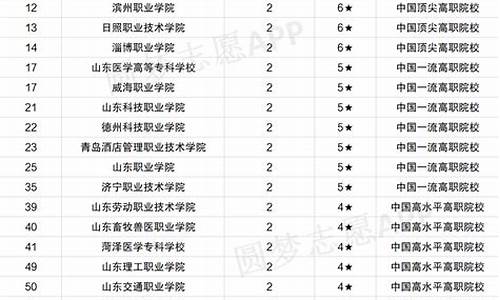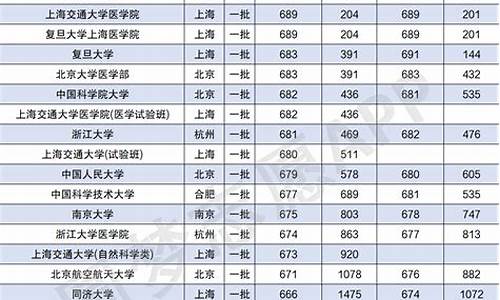您现在的位置是: 首页 > 招生信息 招生信息
高考英语重点短语汇总_高考英语重点
tamoadmin 2024-05-17 人已围观
简介1.高考英语知识要点总结 代词在近几年高考试题中的复现率为100%,每年至少测试一道题。高考代词常常考查考生灵活运用代词的能力。下面由我为整理有关高考英语知识点代词的资料,希望对大家有所帮助! 高考英语知识点代词 ● one泛指一个人或物?其复数形式为ones one和the one作同位语时,如果与其同位的词语是特指,则用the one;如果是泛指,则用one, ● that指代前面提到
1.高考英语知识要点总结

代词在近几年高考试题中的复现率为100%,每年至少测试一道题。高考代词常常考查考生灵活运用代词的能力。下面由我为整理有关高考英语知识点代词的资料,希望对大家有所帮助!
高考英语知识点代词
● one泛指一个人或物?其复数形式为ones one和the one作同位语时,如果与其同位的词语是特指,则用the one;如果是泛指,则用one,
● that指代前面提到过的名词,常有后置定语 that的复数形式是those that可指代单数可数名词(= the one), 也可指代不可数名词,或指代前面提到过的一件事
● it可指代前面提到过的一 个名词,如例7;指代一件事,如例8;指代不明性别的婴儿或不明确的人,也可指代时间?天气?距离等0
二、考查all, both, either, neither, none, no one的用法
[考点解读]
● both表示"两个人或物都",具有肯定含义; either表示"两者中的 任何一个",如例13; neither表示"两者都不"
高考英语必考重点句型
句型1
would rather that somebody did…"宁愿……;更愿意……"(表示现在或将来的愿望)
would rather that somebody had done…"宁愿……;更愿意……"(表示过去的愿望)
[例句]
I'd rather you posted the letter right now. 我想让你现在去寄信。
I'd rather you were not a celebrated actor. In that case, we could spend more time together.
我到情愿你不是个知名演员,这样我们可以有更多的时间在一起。
I'd rather that I hadn't seen her yesterday. 我情愿昨天没有看到她。
句型2
as if/though+主语+did/had done…好像……(表示现在或将来的情况用过去时;表示过去的情况用过去完成时)[参考句型4]
[例句]
Our head teacher treats us as if we were her own children, so all the students in our class think highly of her.
Alan talked about Rome as if he had been there. Alan谈起罗马来就好像他去过那里似的。
句型3
"wish +宾语从句",表示不大 可能实现的愿望
表示现在的愿望:主语+过去时;
表示过去的愿望:主语+had done;
表示将来的愿望:主语+would/could do
[例句]
How I wish we students had more free time to relax ourselves! 我们学生多么希望有更多的自由时间放松自己!
I failed in the maths exam. How I wish I hadn't wasted so much time playing!
What a pity you can't go to the party. How I wish I could dance with you at the party!
高考英语名词作定语的误用
典例—Where does your sister work, Jack?
—She works in a .
A. shop of cloth B. cloth‘s shop C. shop with clothes D. clothes shop
错因分析:有些考生会因为对名词作定语的用法运用不当而错选B.其实,clothes“服装”只有复数形式,而单数形式“布店”应用shop for cloth或cloth shop,因此,根据语境可知,正确答案选D.
名词作定语时一般用其单数形式,然而,名词parents, clothes, sports等,作定语时必须要使用其复数形式。另外,man, woman作定语时,如果中心词是单数,则用其单数形式;如果中心词是复数,则用其复数形式。
高考英语知识点代词归纳相关 文章 :
1. 高考英语复习知识点:数词、代词与连词
2. 高考英语知识点考点归纳
3. 高考英语知识点考点总结归纳
4. 高考英语语法考点总结
5. 高中英语知识点总结与归纳
6. 高考英语语法填空代词知识点与非谓语动词之分词表
7. 高中英语语法知识点整理总结
8. 高考英语知识点冲刺复习大全
9. 英语高考知识点总结归纳
10. 高考英语知识考点汇总
高考英语知识要点总结
考生选择的复习资料不宜过多、要精当、系统性好一些,有针对性地适当补充较弱方面的专项练习材料,可以向老师咨询,从而更好的使自己提升,下面是我给大家带来的 高三英语 基本基础知识点概括,希望大家能够喜欢!
高三英语基本基础知识点概括1
1、 at
如: 常用词组有: at noon, at night
表示时间的 at, in, on:表示片刻的时间,at 8 o’clock,at midnight, at the end of, at that time, at the beginning of, at the age of, at Christmas, at New Year 等。
in 表示一段的时间
如:in the morning, in the afternoon, in the evening, in October, in 1998, in summer, in the past, in the future 等。
on 总是跟日子有关,on Monday, on Christmas morning, on the following, on May Day, on a warm morning 等。
2、表示时间的 since 和 from:since 表示从过去到现在的一段时间的过程,常与现在完成时连用:from 表示从时间的某一点开始,不涉及与现在的关系。一般多与现在时、过去时、将来时连用。
如:I hope to do morning exercises from today./ We have not seen each other since 1995.
3、表示时间的 in 和 after:两者都表示“在(某个时间)之后,区别在于in表示“在(一段时间)之后” ,而 after 则表示“在(某一具体时间点之后),in 短语 和将来时态连用,after 短语和过去时态或将来时态连用。
如:We’ll be back in three days.
After seven the rain began to fall.
What shall we do after graduation?
After two months he returned. 注意:after 有时也可以表示在一段时间之后(常用在过去时里)
4、表示地理位置的 in, on, to:in 表示在某范围内,on 指与什么毗邻,to 指在某环境范围之外
如:Changchun is in the northeast of China./ Mongolia is on the north of China./ Japan is tothe east of China.
5、表示“在……上”的 on 和 in:on 只表示在某物的表面上,而用 in 表示占去某物一部分,表示……上
如:There is a book on the piece of paper./ There is an interesting article in the newspaper./ He dug a hole in the wall.
6、表示“穿过……”的 through 和 across:through 表示从内部通过,与 in 有关;across 表示“穿过……”,表示从一端至另一端在表面上的通过,与 on 有关。
如:Water flows through the pipe./ The old man walked across the street.
7、in the corner, on the corner, at the corner:in the corn 表示在落,in 指角的内面;on the corner 表示“在角上” ,on 指的不是内面,也不是外面,而含内外兼有之意;at the corner指“在拐角处” 指的是拐角外附近的外面。
如:The lamp stands in the corner of the room./ I met at with him at the street corner./ He sat on the corner of the table.
8、in the end, at the end of, by the end of:in the end 作“最后”“终于”解,可单独使用,后不接介词 of;at the end of 表示“在……末梢”“到……尽头” ,既可指时间,也可以指地上或物体。不可单独使用;by the end of 作“在……结束时”“到……末为止”解,只能指时间,不可单独使用。
如:In the end they reached a place of safety./ At the end of the road stands a beautiful garden./ They decided to have an English evening at the end of this week./ by the
end of last month he had finished the novel
9、表示“关于”的 about 和 on:两者都有“关于”的意思,不过前者为一般用词,而后者表示“关于” ,为较正式的 “论述”
如:He came to tell me about something important./ He wrote a book on science
10、between, among:一般说来,between 表示两者之间,among用于三者或三者以上的中间。
如:You are to sit between your father and me./ He is always happy among his classmates.
注意:但有时说的虽然是三个以上的人或东西,如果强调的是两两相互间接关系,适用于between。
如:Agreements were made between the different countries. 在谈到一些事物或一组事物,
而把它们视为分居两边时用 between。
如:The little valley lies between high mountains.
在谈事物 间的差别时,总是用 between。
如:They don’t know the difference between wheat, coats and barley.
11、besides, except, but, except for:
besides 指除了……还有
如:All went out besides me
except 指“除了,减去什么” ,不能放在句首。
如:All went out except me.
but 与 except 意思近似,表示“除了……外”经常用在 no, all, nobody, anywhere, everything 等和其他疑 问词后面。
如:I never saw him reading anything but the newspaper.;
except for 表示“如无……就, 只是”表明理由细节。
如:His diary is good except for a few spelling mistakes.
12、表示“用”的 in 和 with:表示工具的“用” 、表示“ ,用 with,而表示材料、方式、 方法 、度量、单位、语言、声音等的 “用” 用 in。
如:He is writing a letter with a pen./ He wrote the letter in pencil
We measured it in pounds./ Read the text in a loud voice./ Tell me the story in English.
13、charge of 和 in the charge of:in 两者都表示 “由谁负责、照顾、管理” 区别在于: charge of 后接被照管的人或物, in the charge of 后面则跟照管的人。
如:Who is in charge of the project
The project is in the charge of an engineer
14、as, like:as 作“作为”“以……地位或身份”解。
如:Let me speak to you as a father.(事实是父亲)
like 作“象……一样”解
如:Let me speak to you like a father.(事实上不是父亲)
15、in front of 和 in the front of:in front of = before,是“在……前面”的意思(不在某物内)
in the front of 则是“在……前部”的意思(在某物内)
如:There is a desk in front of the blackboard./ The boy sat in the front of the car.
16、in, into:into 表示动向,不表示目的地或位置。
如:We walked into the park.;in 通常表示位置。
We walked in the park;
in 和 drop, fall, put, throw, break 等终止性动词连用时,也可以表示动向。
如:I have put the coin in (into) my pocket.我把硬币放进衣袋。
高三英语基本基础知识点概括2
一、就近一致原则
1.由or,not only...but also...,neither...nor...,either...or...,whether...or...,not...but...等连接两个或两个以上的并列主语时,通常根据就近一致原则,谓语动词要与离它最近的主语在数上保持一致。
Neither his parents nor I am able to persuade him to change his mind.
2.here/there引导一个 句子 而主语又不止一个时,通常根据就近原则,谓语动词要与离它最近的主语在数上保持一致。
Here is a ruler,a few pencils and two copybooks.
二、意义一致原则
1.谓语动词必须用单数的情况
(1)表示学科的名词以及works(工厂),news(消息)等作主语时,虽然本身为复数形式,但表示单数意义时,谓语动词仍用单数。
Politics is his favorite subject.
(2)表示某些组织机构的名词、书/报名、国名、地名等作主语时,虽然形式上是复数,但所表示的意义是单数,所以谓语动词用单数。
Do you know when the United Nations was set up?
2.谓语动词必须用复数的情况
表示总称意义的名词,如people,police,public,cattle等作主语时,谓语动词用复数。
The police are searching for the murderer.
3.谓语动词的形式依据主语表示的意义而定
(1)集体名词,如family,class,group,team,club,company,government,population等作主语时,谓语动词的形式根据其在语境中表示的意义而定。当其表示集体意义,强调整体概念时,谓语动词用单数;当其表示集体中各个组成部分,强调个体概念时,谓语动词用复数。
As far as I know,his family is not very large but the family are all music lovers.
(2)“the+形容词/分词”表示“一类人”时,谓语动词用复数。
The poor were looked down upon in the old days.
三、语法一致原则
1.由and连接的两个名词作主语
(1)“a/the+名词单数+and+名词单数”表示一个人(双重身份),谓语动词用单数。
The teacher and poet often gives lectures around the city.
(2)“a/the+名词单数+and+a/the+名词单数”表示两个人,谓语动词用复数。
The teacher and the poet have just arrived.
(3)“every+名词单数+and+every+名词单数”表示每一个人,谓语动词用单数。
Every boy and every girl has the right to receive education in our country.
(4)通常由两个部件组成的物品如:a knife and fork (一副刀叉)等作主语,谓语动词用单数。
Bread and butter is not to his taste.
2.表示时间、数量、长度及价格的名词,尽管有时是复数形式但常被看作是一个整体,谓语动词用单数形式。
Is fifty pounds enough?
3.“分数/百分数+of+名词”作主语时,谓语动词的形式根据of后的名词的形式来定,如果名词是可数名词复数,谓语动词用复数形式;如果名词是单数可数名词或不可数名词,谓语动词用单数形式。
Two-thirds of the books are about science.
Only 30% of the work was done yesterday.
高三英语基本基础知识点概括3
分词的概念
分词是动词的一种非谓语形式,主要起形容词和副词的作用,可以作定语、表语或是状语等。分词有两种,一种是现在分词,一种是过去分词。这两种分词在句子中能担任的成分大体相同,主要是在“意思”上有主动和被动之分。过去分词一般有被动和完成两大特征。
过去分词的定语和表语功能定语表“完成”或“被动”
boiled water开水 fallen leaves落叶
the risen sun升起的太阳 selected apples 精选苹果
spoken English 英语口语 iced beer冰镇啤酒
cooked food熟食 fried chips炸土豆条
单个的过去分词作定语时,一般放在被修饰词语之前(如上例),也可以放在所修饰词语的后面。 Hurry up,there is only a little time left.快点,时间不多了。
If you wish everything changed,please say so.
你如果希望改变一切,请说明。
过去分词短语作定语时,须将分词放在被修饰的词语之后,功能相当于一个定语从句。 Near the window,there is a bookshelf filled
with many books(=which is filled with many books).
靠近窗户,有一个装满书的书架。
Her daughter,brought up by me(=who was brought
up by me)has begun to work now.
由我带大的她的女儿现在已经参加工作了。 当“人”作主语时用过去分词作表语,表示主语的状态或思想感情等。 When we heard of it,we were deeply moved.
当我们听到这件事时,被深深地感动了。 He seemed quite delighted at the idea.
听到这个想法,他似乎很高兴。
过去分词作表语不要与被动语态混为一体。分词作表语表示主语的状态,而被动语态则表示被动的动作。 My glasses are broken.我的眼镜碎了。(状态)
My glasses were broken by my son.
我的眼镜被我儿子摔碎了。(动作)
On the earth,70% of the surface is covered with water.地球表面70%是被水覆盖的。(状态)
I was greatly surprised by a knock at the door.
敲门声使我大为吃惊。(动作)
高三英语基本基础知识点概括相关 文章 :
★ 高三英语知识考点整理概括
★ 高中英语学习基础知识总结归纳
★ 高中英语基础知识点总结
★ 高中英语学习基础知识总结归纳
★ 高考英语基础知识学习攻略
★ 高三英语语法知识点总结
★ 高中英语学习基础知识总结归纳(2)
★ 高考英语重点知识点
★ 高中英语基础知识点
★ 高考英语知识点归纳最新
英语高考本身就不仅仅是背背单词那么简单的,高考英语涉及到很多语法知识,是一次非常全面正式的考试。下面是我为大家整理的高考英语知识要点 总结 ,希望对大家有用!
目录
高考英语语法知识
高考英语知识重点
高考英语必备知识
高考英语语法知识
主语从句
主语从句是在复合句中充当主语的从句,通常放在主句谓语动词之前或由形式主语it代替,而本身放在 句子 末尾。
1. It 作形式主语和it引导强调句的比较。
It 作形式主语代替主语从句,主要是为了平衡句子结构,主语从句的连接词没有变化。而it引导的强调句则是对句子某一部分进行强调,无论强调的是什么成分,都可用连词that。被强调部分指人是也可用who/whom。
例如:
It is a pity that you didn’t go to see the film.
It doesn’t interest me whether you succeed or not.
It is in the morning that the murder took place.
It is John that broke the window.
2. 用it 作形式主语的结构。
(1) It is +名词+从句
It is a fact that … 事实是…
It is an honor that …非常荣幸
It is common knowledge that …是常识
(2) it is +形容词+从句
It is natural that… 很自然…
It is strange that… 奇怪的是…
(3) it is +不及物动词+从句
It seems that… 似乎…
It happened that… 碰巧…
(4) it +过去分词+从句
It is reported that… 据报道…
It has been proved that… 已证实…
3. 主语从句不可位于句首的五种情况。
(1) if 引导的主语从句不可居于复合句句首。
(2) It is said , (reported) …结构中的主语从句不可提前。
例如:
It is said that President Jingo will visit our school next week. (right)
That President Jiang will visit our school next week is said. (wrong)
(3) It happens…, It occurs… 结构中的主语从句不可提前。
例如:
It occurred to him that he failed in the examination. (right)
That he failed in the examination occurred to him. (wrong)
(4) It doesn’t matter how/whether …结构中的主语从句不可提前。
例如:
It doesn’t matter whether he is wrong or not. (right)
Whether he is wrong or not doesn’t matter. (wrong)
(5) 含主语从句的复合句是疑问句时,主语从句不可提前。
例如:
Is it likely that it will rain in the evening? (right)
Is that will rain in the evening likely? (wrong)
4. What 与that 在引导主语从句时的区别。
What 引导主语从句时在句时在从句中充当句子成分,如主语.宾语.表语,而that 则不然。
例如:
1) What you said yesterday is right.
2) That she is still alive is a consolation.
〈〈〈
高考英语知识重点
1.abandon v.放弃,抛
2.ability n. 能力;才能
3.abnormal adj. 不正常的
4.aboard prep. & adv.在(或上)船、飞机、火车等
5.abolish v. 废除
6.abortion n. 流产
7.abroad adv. 到(在)国外
8.abrupt adj. 突然的
9.absence n. 不在,缺席
10.absent adj. 缺席,不在
11.absolute adj. 绝对的
12.absorb v. 吸收
13.abstract adj. & n. 抽象(的)
14.absurd adj. 荒谬的
15.abundant adj. 丰富的
16.abuse v. 滥用,虐待
17.access n. & v. 接近,进入
18.accessible adj. 可接近的,可使用的
19.accident n.事故,意外的事
20.accommodation n. 住宿,调节
〈〈〈
高考英语必备知识
1. 元宵节 : Lantern Festival
2. 刺绣 :Embroidery
3. 重阳节 :Double-Ninth Festival
4. 清明 节:Tomb Sweeping Day
5.剪纸:Paper Cutting
6.书 法: Calligraphy
7. 对联 :(Spring Festival) Couplets
8.象形文字:Pictograms/Pictographic Characters
9.雄黄酒:Realgar Wine
10.四合院:Siheyuan/Quadrangle
11.战国:Warring States
12.风水 :Fengshui/Geomantic Omen
13.昆曲 :Kunqu Opera
14.长 城 :The Great Wall
15.集体舞 :Group Dance
16.黄土高原 :Loess Plateau
17.红臼喜事:Weddings and Funerals
18. 中秋节 :Mid-Autumn Day
19.花鼓戏:Flower Drum Song
20.儒家 文化 :Confucian Culture
21.中国结:Chinese knotting
22.古装片:Costume Drama
23.武打片:Chinese Swordplay Movie
24.元宵:Tangyuan/Sweet Rice Dumpling (Soup)
25.越剧:Yue Opera
〈〈〈
高考英语知识要点总结相关 文章 :
★ 高考英语必考知识点归纳
★ 高考英语知识要点总结
★ 高考英语知识要点总结
★ 高考英语知识点归纳整理
★ 英语高考知识点总结
★ 最新高考英语重点知识点归纳
★ 高考英语知识点考点总结归纳
★ 高考英语知识点总结
★ 高考英语知识点总结归纳
★ 高考英语知识点归纳
var _hmt = _hmt || []; (function() { var hm = document.createElement("script"); hm.src = ""; var s = document.getElementsByTagName("script")[0]; s.parentNode.insertBefore(hm, s); })();








